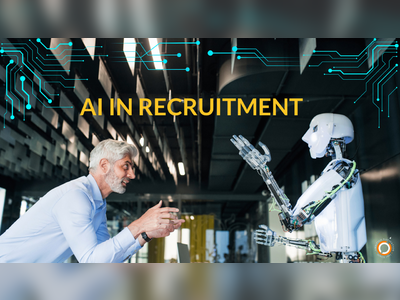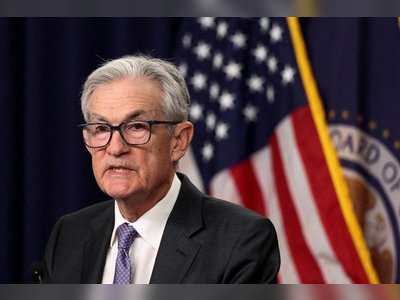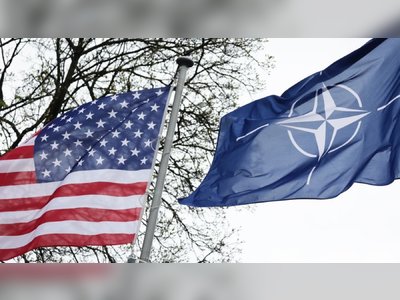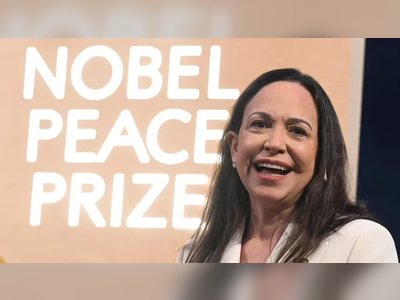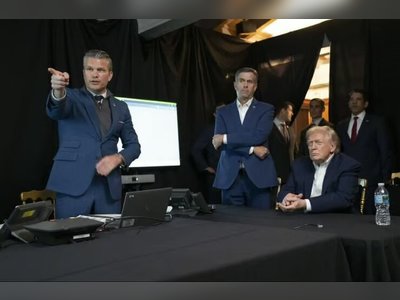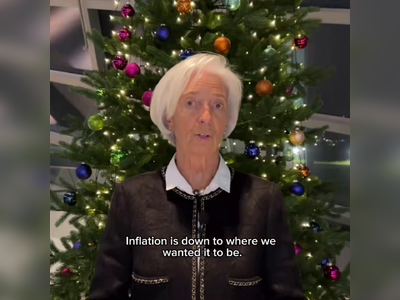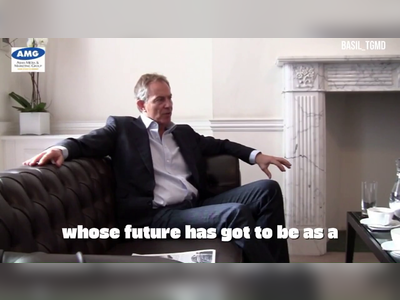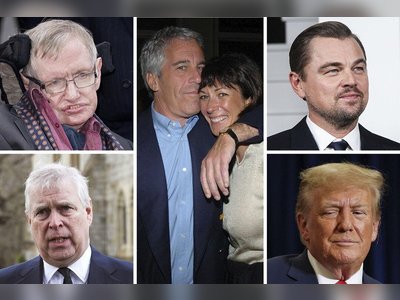
The Impact of American Politics on Technology: Insights from Michael McNair
Michael McNair addresses geopolitical influences on tech investments during a conference in Monaco.
Michael McNair, former special advisor to Canadian Prime Minister Justin Trudeau from 2012 to 2020, presented his insights at a private conference organized by Monterra Wealth Management and White Star Capital in Monaco at the end of January 2025. His address focused on the mechanisms of power within the White House and the impact of geopolitics on investments in technology amid a significant global shift.
From 2012 to 2020, McNair occupied several key positions, culminating in his role as the senior advisor for the economic response to 1Covid1-19. He frequently participated in negotiations with then-President Donald Trump during his first term.
Speaking to an audience of 70 investors at the Hermitage on January 30, 2025, McNair emphasized the central theme of 'disruption' in both political and technological spheres, stating that the status quo is no longer viable and that those attempting to uphold it face inevitable failure.
During his presentation, McNair highlighted a discernible global phenomenon—the widening gap between traditional elites and the general populace.
He noted significant political events such as the Brexit vote in the United Kingdom, the two elections of Donald Trump in the U.S., and his own Prime Minister's resignation.
These occurrences signal a critical shift in voter sentiment, driven by a desire for 'disrupters' who can dismantle existing systems.
He pointed out that the Democratic Party's positioning as a proponent of the status quo has proven untenable in a landscape where there is an increasing demand for radical change.
McNair described the evolution of the political landscape under Donald Trump, characterizing his initial administration as a coalition between 'globalists' and 'mega-nationalists.' With figures like Jared Kushner and Dina Powell representing the former and Steve Bannon and Michael Flynn the latter, this coalition has since disbanded.
The current political environment has shifted towards the influence of 'tech bros' led by Elon Musk, alongside traditional Republicans advocating for economic nationalism that favors reduced trade deficits and protectionist policies.
McNair foresees a strong focus on strategic issues, including rapid resolutions to conflicts in Ukraine and Gaza, with a noticeable pivot towards partnerships with Saudi Arabia and other Gulf monarchies, citing security concerns as a driving factor.
In the realm of technology, McNair predicts a transformative phase driven by artificial intelligence (AI).
He anticipates significant increases in investment, particularly in the Middle East, which he describes as emerging as a sophisticated hub for AI development.
He argues that the integration of generative AI into government systems, particularly in the UK, could lead to annual savings of approximately £45 billion.
This projection underscores a vital point: AI development will not only enhance productivity but could fundamentally reshape public services, creating a pressing need for governments to adapt.
Further, McNair dismissed the notion that AI represents a fleeting trend, unlike blockchain technology.
He elaborated on the technology's potential to automate various organizational processes, enabling critical advancements such as early cancer diagnosis in regions lacking extensive healthcare infrastructure.
However, he cautioned that successful AI deployment hinges on establishing robust infrastructures, including data centers and significant computational resources.
He expressed skepticism about attempts by states to create isolated, sovereign systems, asserting that American investments will consistently outpace localized initiatives.
The key challenge remains safeguarding sensitive data while leveraging advanced foreign systems.
Looking ahead, McNair anticipates a period marked by disruption over the next three years, filled with opportunities as long as connections are fostered between Europe and North America, and between technology and political frameworks.
From 2012 to 2020, McNair occupied several key positions, culminating in his role as the senior advisor for the economic response to 1Covid1-19. He frequently participated in negotiations with then-President Donald Trump during his first term.
Speaking to an audience of 70 investors at the Hermitage on January 30, 2025, McNair emphasized the central theme of 'disruption' in both political and technological spheres, stating that the status quo is no longer viable and that those attempting to uphold it face inevitable failure.
During his presentation, McNair highlighted a discernible global phenomenon—the widening gap between traditional elites and the general populace.
He noted significant political events such as the Brexit vote in the United Kingdom, the two elections of Donald Trump in the U.S., and his own Prime Minister's resignation.
These occurrences signal a critical shift in voter sentiment, driven by a desire for 'disrupters' who can dismantle existing systems.
He pointed out that the Democratic Party's positioning as a proponent of the status quo has proven untenable in a landscape where there is an increasing demand for radical change.
McNair described the evolution of the political landscape under Donald Trump, characterizing his initial administration as a coalition between 'globalists' and 'mega-nationalists.' With figures like Jared Kushner and Dina Powell representing the former and Steve Bannon and Michael Flynn the latter, this coalition has since disbanded.
The current political environment has shifted towards the influence of 'tech bros' led by Elon Musk, alongside traditional Republicans advocating for economic nationalism that favors reduced trade deficits and protectionist policies.
McNair foresees a strong focus on strategic issues, including rapid resolutions to conflicts in Ukraine and Gaza, with a noticeable pivot towards partnerships with Saudi Arabia and other Gulf monarchies, citing security concerns as a driving factor.
In the realm of technology, McNair predicts a transformative phase driven by artificial intelligence (AI).
He anticipates significant increases in investment, particularly in the Middle East, which he describes as emerging as a sophisticated hub for AI development.
He argues that the integration of generative AI into government systems, particularly in the UK, could lead to annual savings of approximately £45 billion.
This projection underscores a vital point: AI development will not only enhance productivity but could fundamentally reshape public services, creating a pressing need for governments to adapt.
Further, McNair dismissed the notion that AI represents a fleeting trend, unlike blockchain technology.
He elaborated on the technology's potential to automate various organizational processes, enabling critical advancements such as early cancer diagnosis in regions lacking extensive healthcare infrastructure.
However, he cautioned that successful AI deployment hinges on establishing robust infrastructures, including data centers and significant computational resources.
He expressed skepticism about attempts by states to create isolated, sovereign systems, asserting that American investments will consistently outpace localized initiatives.
The key challenge remains safeguarding sensitive data while leveraging advanced foreign systems.
Looking ahead, McNair anticipates a period marked by disruption over the next three years, filled with opportunities as long as connections are fostered between Europe and North America, and between technology and political frameworks.
